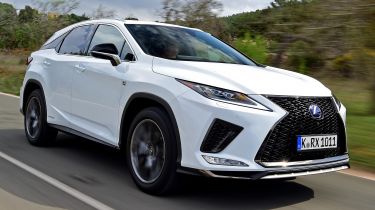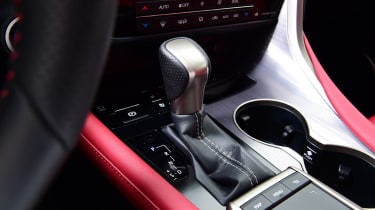Lexus RX review (2016-2022) - MPG, CO2 and running costs
No longer a top company car tax choice due to efficient plug-in hybrid rivals, but RX models hold their value well

Despite a 3.5-litre six-cylinder petrol sitting under the bonnet, the RX 450h hybrid is surprisingly economical. Every version comes with 20-inch alloys, so there’s no difference in economy between top variants and lesser versions with smaller wheels. Under WLTP testing, the RX delivers 35.7mpg, while the 7-seat RX L is a touch less efficient at 34.4mpg.
Emissions for the RX are 178-186g/km depending on variant, meaning the 450h is initially more expensive on road tax than many PHEV rivals, and will incur an extra charge after the first year due to all versions being priced over the £40,000 threshold.
From the business perspective, Benefit-in-Kind (BiK) rates no longer flatter the Lexus in the way that they used too. A top-rate tax-payer will face annual charges of at least £8,500 calculated at 37 per cent of list price of the cheapest Lexus RX model. Volvo XC90 T8 drivers would be charged between 15 and 17 per cent of their car’s list price over three years due to its much lower PHEV C02 ratings, making substantial savings. If you pay for your own fuel, and can commute on a PHEV’s electric only range, then the Lexus once again falls short.
Insurance groups
Both the RX and RX L sit in groups 41-42 for insurance, with the F Sport and Takumi versions being most expensive.
Depreciation
Residual values for all RX models are particularly strong, and you can expect it to hold its value better than a Volvo XC90, a BMW X5 and some Audi Q7 variants. After three years and 30,000 miles, an RX or RX L should retain at least 50 percent of its value.









